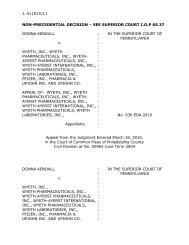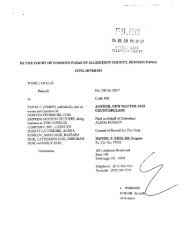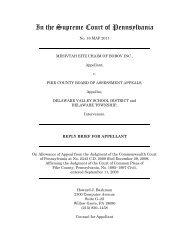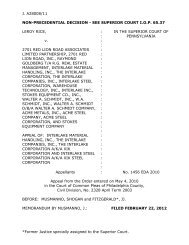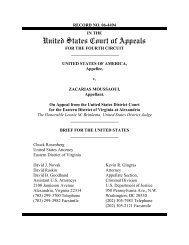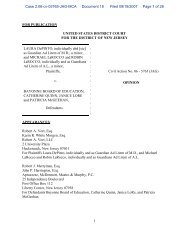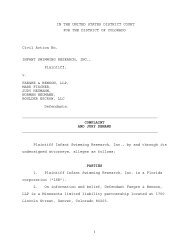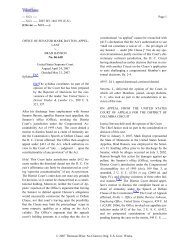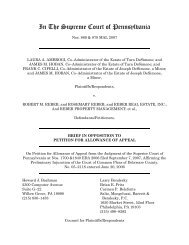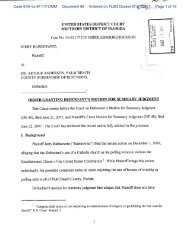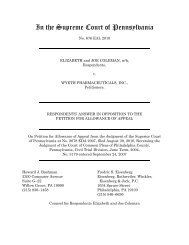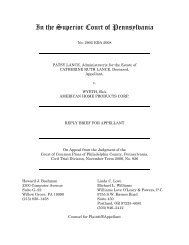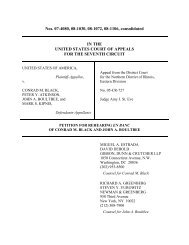Stone v. Bear, Stearns & Co., Inc. - How Appealing
Stone v. Bear, Stearns & Co., Inc. - How Appealing
Stone v. Bear, Stearns & Co., Inc. - How Appealing
You also want an ePaper? Increase the reach of your titles
YUMPU automatically turns print PDFs into web optimized ePapers that Google loves.
the adverse arbitration award, Bulko found out that the designated non-public arbitrator had not<br />
practiced law for several years. In Bulko’s estimation, this precluded her from serving as a non-<br />
public arbitrator and invalidated the award under Section 10(a)(4). Id. at 623-24. The Fifth Circuit<br />
rejected this argument on several grounds. For one, the court reasoned that:<br />
Because the parties’ agreement (contract) did not have a specific<br />
method-of-selection clause, appointing Marshall as the panel’s non-public<br />
arbitrator was arguably not a departure from their agreement. It called for any<br />
dispute to be decided by NASD arbitration. For disputes involving more than<br />
$50,000, NASD arbitration rules call for an arbitration panel consisting of two<br />
public arbitrators and one non-public arbitrator. That is what Bulko and Morgan<br />
Stanley received, with the NASD classifying Marshall as the non-public arbitrator.<br />
Id. at 626. This mirrors the situation we face here. <strong>Stone</strong> has not submitted any contract or<br />
agreement specifying a method-of-selection clause; rather, like Bulko, <strong>Stone</strong> relies on the boilerplate<br />
language in the parties’ Uniform Submission Agreement which generally calls for FINRA rules to<br />
govern the arbitration. (Doc. No. 19 Ex. V). And like Bulko, <strong>Stone</strong> received an arbitration panel<br />
consisting of two public arbitrators and one non-public arbitrator, at least as classified by FINRA. As<br />
such, <strong>Stone</strong>’s Section 10(a)(4) argument fails, just as Bulko’s did.<br />
The Bulko court also reasoned that even if the challenged arbitrator’s “selection contradicted<br />
the parties’ agreement, it was, at most, a trivial departure not warranting vacatur.” Bulko, 450 F.3d at<br />
626 (citation omitted). In particular, the Bulko court opined that “[b]ased on her work experience,<br />
Marshall fulfilled the purpose of a non-public arbitrator, which is to serve as an industry insider on<br />
the arbitration panel.” Id. Using this functional approach, we find that Marston adequately fulfilled<br />
her role as a public arbitrator because she (through her husband) was not overly tied to the securities<br />
industry. (See “Evident Partiality” section, supra). Therefore, vacatur under § 10(a)(4) is not<br />
appropriate.<br />
Case 2:11-cv-05118-LDD Document 22 Filed 05/29/12 Page 26 of 35<br />
26



